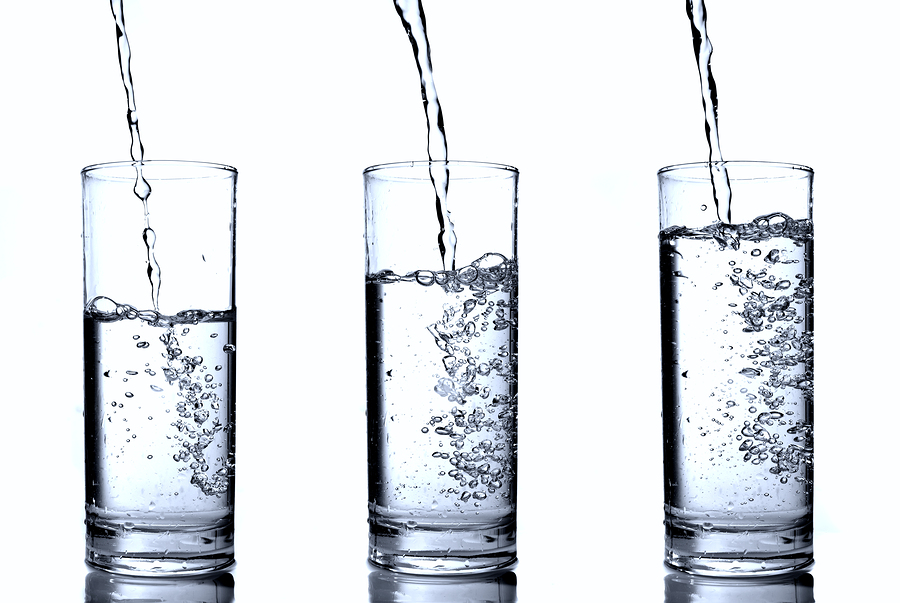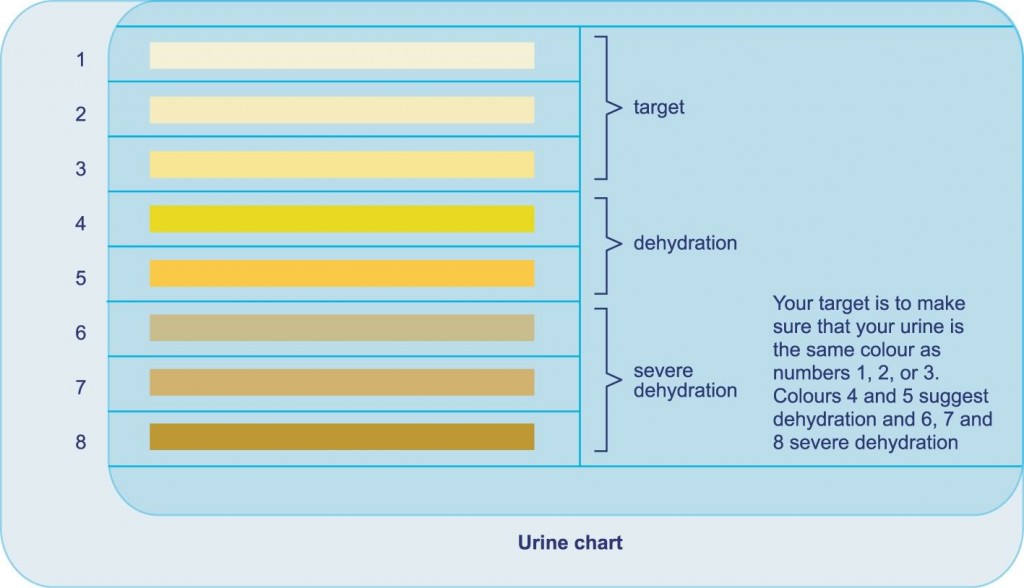Fluid Facts – hydration for health
With summer upon us and soaring temperatures and the motivation to get out and walk run and become generally more active in warmer temperatures we should all be aware of the single most important issue to health and performance – hydration.
Most of us are aware of the importance of drinking sufficient water as it’s essential to digestion, absorption of nutrients, the elimination of toxins and wastes and the overall function of all systems in our bodies.
Our bodies are made up of varying amounts of around during our lives; from about 90% of total weight as a fetus to 74% as an infant, 60% as a child, 59% as a teenager and adult, and down to around to 56% male; and female 47% females in the over-50’s. The gender differences, from the teenager years onwards, are due to their differing fat levels.
Water has a biological half-life in our bodies of about 9-10 days and every water cell is replaced about every two weeks (depending on the person’s age, gender, build and water consumption with higher intakes giving shorter half life).
So you can see the importance of water and therefore the need to spot the signs of dehydration; and ensure proper hydration day in day out.
Signs of mild to moderate dehydration;
- 1-5% reduction in body weight
- Thirst
- Feeling dizzy/light headed
- Sleepiness/tiredness
- Dry, sticky mouth
- Headache
- Passing small amounts of dark, concentrated urine
Signs of severe dehydration
- 5+% reduction in body weight
- Extreme thirst
- Sunken eyes
- Very dry mouth, skin and mucous membranes
- Low blood pressure (hypotension)
- Rapid heartbeat
- Low levels of consciousness
How much water?
Fluid need is quite individualistic, as we all lose water through a combination of breathing, perspiration, and urine and bowel movements. You must replenish its water supply by consuming beverages and foods that contain water. The Institute of Medicine suggests an adequate intake for men is roughly 3 liters of total beverages a day. For women it’s 2.2 liters (about 9 cups) of total beverages a day. Other researcher suggest it’s 1750ml (1.7 liters) a day for men and women some 1400ml (1.4 liters) a day in the healthy population.
What about the advice to drink eight glasses a day?
Everyone has heard this but as you can see there is some variance between people; so whilst the eight (eight ounce glasses) a day rule isn’t supported by hard evidence, it remains popular because it’s easy to remember.
However there is an easy way to check your individual need; through checking Urine Color (Pee Test). Normal urine color ranges from pale yellow to deep amber — the result of a pigment called urochrome and how diluted or concentrated the urine is. Remember however that some pigments and other compounds in certain foods and medications may change your urine color such as beetroots and berries are among the foods most likely to affect urine color. Some over the counter, prescription medications and supplements give urine more-vivid tones. But that aside the chart below is a quick and easy way to check the system every day!
Exercise and Fluid Replacement.
If you exercise in any activity that makes you sweat, you need to drink extra water to compensate for the fluid loss. An extra 400 to 600 milliliters (about 1.5 to 2.5 cups) of water is sufficient for short bouts of exercise below 40 minutes, but intense exercise lasting more than an hour requires more fluid depending on how much you sweat during exercise, and the duration and type of exercise but sipping fluids every 10-15 minutes is a good rule of thumb.
The single best way to determine how much port exercise fluid you need is done by weighing yourself (without cloths) before and after hard exercise. A drop in body weight of 1kg equates to 1 liter of water required to regain your individual hydration norm. this however should not be drunk all at once but slowly consumed over the post exercise hour.
“Sports Drinks” Which is one for me?
Sports drinks have electrolytes (and generally carbohydrates) within them which are beneficial during and immediately after intense or prolonged exercise as they aid increased fluid absorption and give carbohydrate energy back to fatigued muscles. There are three types of sports drinks;Isotonic drinks; which quickly replaces fluids lost by sweating and supplies a boost of carbohydrate. This drink is the choice for most athletes and commercially is available in brands such as Boots Isotonic, Lucozade Sport and Powerade. Hypotonic drinks; doing the same job as isotonic drinks but without the added carbohydrate. Hypertonic drinks;used to supplement daily carbohydrate intake normally after exercise to top up muscle glycogen stores. In ultra distance events, high levels of energy are required and hypertonic drinks can be taken during exercise to meet the energy demands. If used during exercise Hypertonic drinks need to be used in conjunction with Isotonic drinks to replace fluids.
Sports drinks contain citric acid; which have an erosive potential on teeth so brushing after use and regular use of a neutralizing mouthwash is a good idea.
Finally…Caffeine and dehydration: Researchers used to believe that caffeinated drinks had a diuretic effect. This means that you would urinate more after drinking them, which could increase your risk of becoming dehydrated. Recent research however shows that this is not true and that caffeine has a diuretic effect only if you consume large amounts of it; more than 500 to 600 milligrams (5 to 7 cups of coffee) a day.
So, carry that water bottle around with you during the day, keep a bottle on your desk – but make sure you actually drink them, each day!; and try the following strategies to increase your daily fluid intake;
- Have three pieces of fruit each day
- Have three (especially green and red) vegetables each day
- Have water by your bed each night
- As soon as you get up in the morning drink a glass of water before you do anything else
- Drink (non alcoholic) drinks with every meal
- Have at least two alcohol free days a week
Disclaimer
All content on Silversurfers.com is provided for general information only, and should not be treated at all as a substitute for the medical advice of your own doctor or any other health care professional. Silversurfers will not be responsible or liable for any diagnosis made by a user based on the content on www.silversurfers.com and we are also not liable for the content of any external websites or links from or to Silversurfers to any other websites. Please always consult your own doctor if you’re in any way concerned about any aspect of your health.
Pat Fox
Latest posts by Pat Fox (see all)
- Fluid Facts – hydration for health - July 16, 2014
- Oh to sleep ….. - January 29, 2013
- The Heart of the Matter - December 4, 2012
- Exercise is Medicine - October 24, 2012
- The strength of Strength - October 23, 2012






















